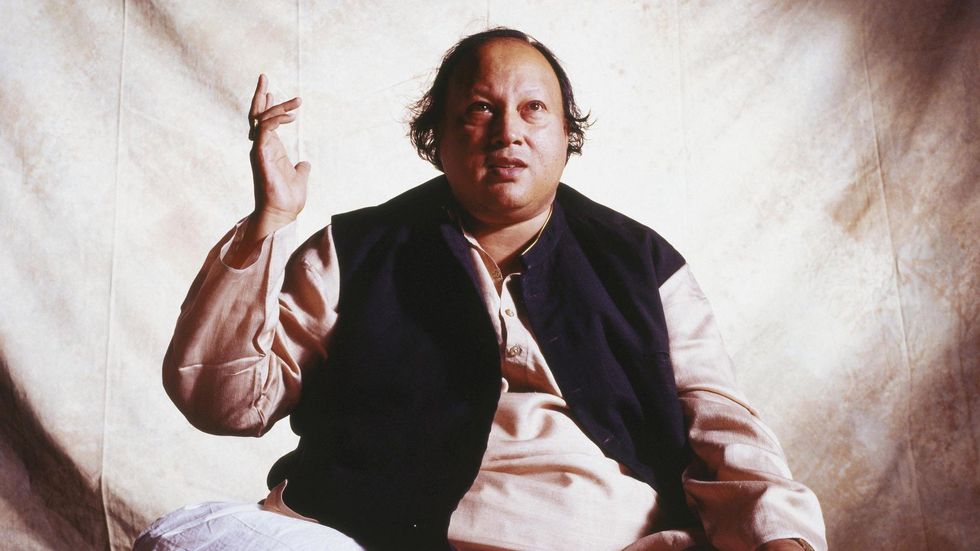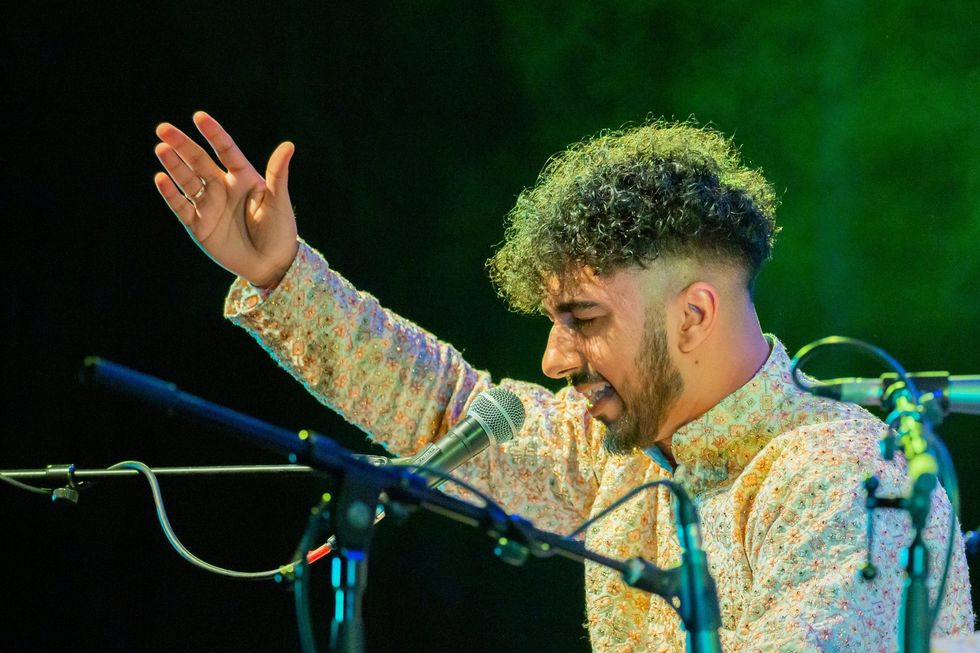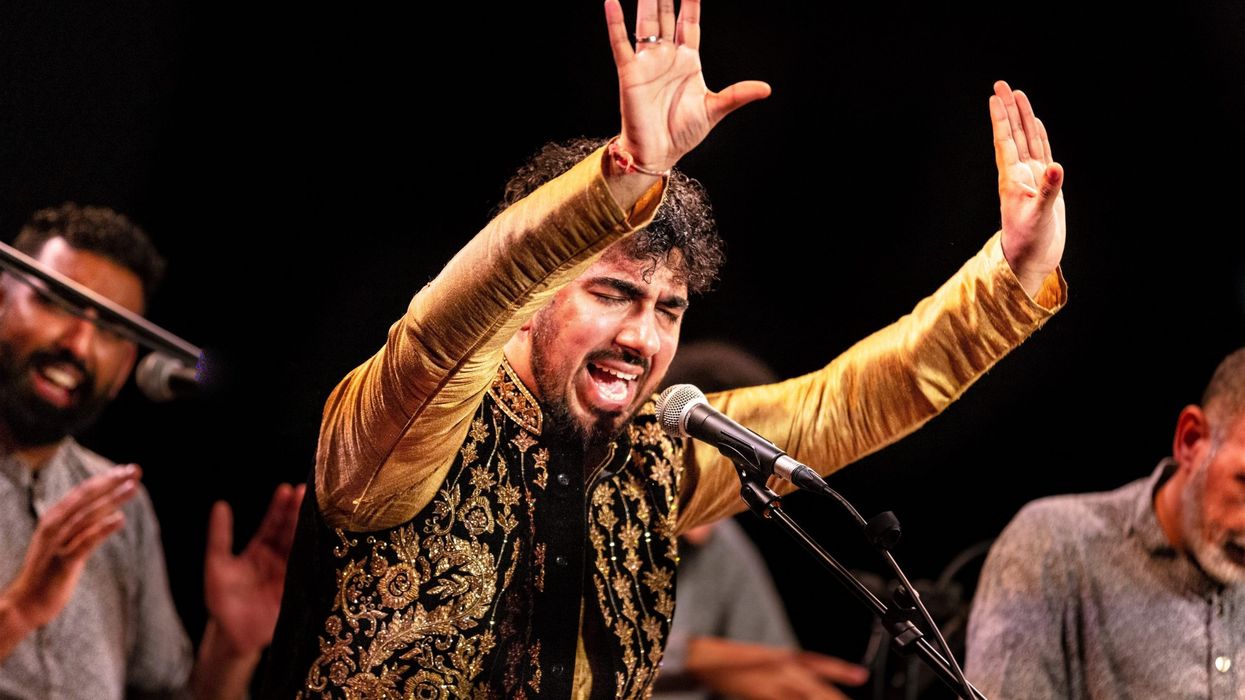BRITISH qawwali maestro Chand Ali Khan regularly entertains audiences with amazing live shows.
He leads a group of incredibly talented performers and is part of a new generation, keeping centuries old tradition alive. The talented singer, currently on another UK tour, revealed his top 10 inspirations to Eastern Eye.
Nusrat Fateh Ali Khan: There are no words to describe the Shahenshah-e-Qawwali, Ustad Nusrat Fateh Ali Khan Saab (NFAK). Qawwali boomed globally due to his musical prowess and classical improvisations. He transcended language barriers and opened qawwali up to a whole new world. His versatility and all-round ability were magnificent. He was magic to those who knew him personally. There will never be another person like him in our generation or the next. His purity, humility and outstanding compositions motivate me to carry his legacy onward. I remember Haji Iqbal (the ex-secretary of NFAK) telling us stories of how humble Khan Saab was with his team, friends, and fans.

Rahat Fateh Ali Khan: The great Ustad-jee has continued to bless and further develop my training in qawwali. Since childhood, I spend around seven-eight hours a day practicing raag and perfecting our musical techniques. Watching how Ustad-jee practices highlights the intensity of the art we do. The direct one-to-one training I have with him motivates me to try harder, to consistently polish and refine my vocal skills.
Riyaaz: I often practice in isolation, alternating between vocal and harmonium. On a typical day, I focus on different raags and various vocal practicing methods to enhance my classical music techniques. Qawwali is an art and not something you can pick up in a day. It’s very gruelling and difficult work, which includes lifelong study to build solid knowledge and foundations, of concepts, musical notes, rules, regulation, music, improvisation and more. Like any vocation, whether a doctor, lawyer, or engineer, it requires rigorous lifelong learning. Beyond that, holding strong knowledge about our Islamic roots, heritage, Sufism, and history of Punjab helps gives contextual understanding behind the poetry and mastery of raag.
The stage: Live performances are everything to a true artist and always a surreal experience. The ambiance and electricity that connects us with audiences is unlike any other feeling. The crescendo and climax of qawwali with the love of our audience really energises us to push further vocally. So, we mean it when we say our audience is the most important part of any performance. In this post-pandemic era, it has been my highlight of interactions and regaining this lost connection. Every time, I know I must deliver my best performance to date. So, each great performance comes with great responsibility.

Wonderful words: The beauty of qawwali is the devotional and Sufi style of poetry, prayers, and thoughts as the base for every performance. I find qawwali gives internal peace and fulfilment to the soul, much like the nourishment I feel from my prayers and charitable endeavours. Written compositions of qawwali draw on the connections and spirituality towards Allah, Prophet Muhammad (PBUH) and the Awliya of Allah. The poetry hits people’s hearts through its relatability and applicability, often as an open topic within spiritual boundaries.
Leadership: Being a leader in the team is challenging. Having musical prowess doesn’t bring leadership and a good team by default. Nurturing this skill and supporting your team like family fosters good rapport and chemistry through our training. I have always looked up to my grandfather who instilled these values when I was young. I vividly remember how he listened, valued, and became entranced by the message of qawwali and spirituality to Allah. He was a great figure that guided me in this way.
Yeh Jo Halka Halka Suroor Hai: My all-time favourite qawwali. The composition and lyrics are masterfully hypnotic. NFAK Saab produced so many variations as impromptu improvisations that broke barriers. Its meaning is just so riveting and the raag it uses builds an amazing crescendo. There is a reason why some versions are over 60 minutes long.
Qawwali party members: I’m fortunate to call upon a large team within our academy. I continually work to help train and instil our qawwali techniques to standardise our collective talent in our particular Punjabi qawwali style. They continue to inspire me through their resilience, and what the future holds.
History: It always inspires me whenever I reflect on my journey as a torchbearer for an 800-year-old heritage. Qawwali is full of many masters and greats that have come before us – nurturing the quality of qawwali over the centuries. And yet today’s online family have probably never heard of them. Some of these Ustads, especially from the last century, continue to influence and inspire my qawwali style.
Parents: My parents are the heart and soul of my accomplishments. They have supported me through thick and thin and continue to be my biggest fans. Without their endorsement, I would not be where I am today.
www.qawwaligroup.com & Instagram: @chandalikhanqawwal




